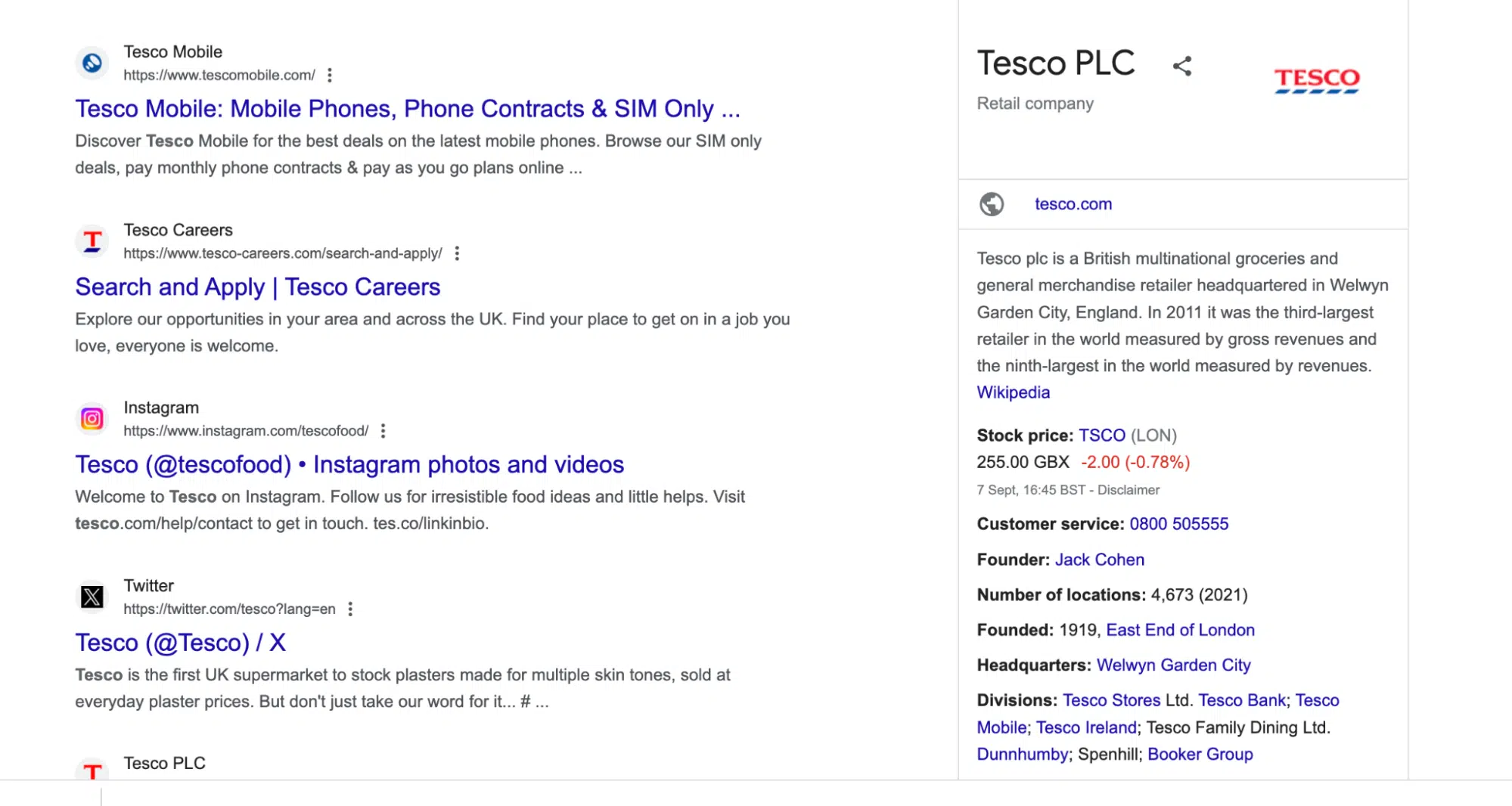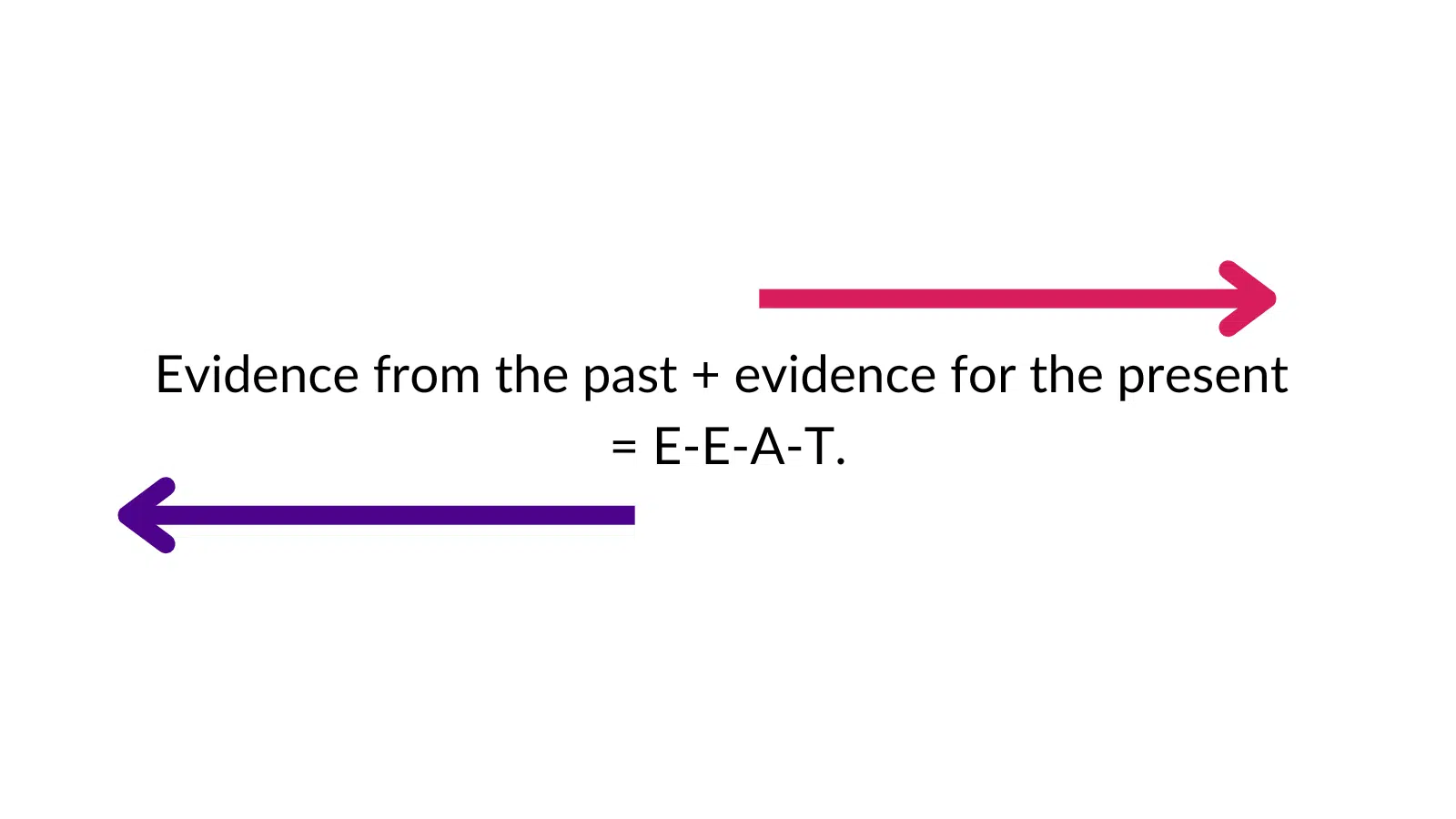A 6-minute process to diagnose E-E-A-T issues
In a future filled with E-E-A-T and AI, SEO will be less about doing and (possibly) more about directing. Here's why.
E-E-A-T is the buzzword on the streets of SEO.
We talk about it, repeat it, say it to clients.
But even though we know what it is, do we really understand how to both diagnose and fix E-E-A-T issues?
Let’s find out.
Common E-E-A-T issues
Where do you start to diagnose issues relating to experience, expertise, authoritativeness and trustworthiness?
The first thing is to take a deep gulp and head to Google Trends.

Whack in your brand name and see what comes up.
Nothing? OK, that’s telling you that you haven’t made a dent in search. Now, being really honest, that’s not uncommon.
But it should serve as a reality check that you need to do more brand marketing to be searched for by a large enough volume to show up on trends.
This isn’t really an SEO job. It comes down to a mix of internal budget and marketing activity.
Good marketing creates a solid link and mentions network around your business website.
But we’ll come back to this later.
E-E-A-T is a brand thing
Once you’ve recovered from that sting, head to the SERP and type in your brand name.
What shows up?
A knowledge panel?

Nothing?
Or just your website or socials?
Fingers crossed all of the above, but also, it depends on your brand name.
If your brand name doesn’t show up, type in your brand name plus what you do.
So you’d search ‘brand name’ + it’s core activity, such as ‘Smiths Accountant’s’.
If that doesn’t work, you’ve got brand issues, but generally, that’ll work.
Don’t choke on what you E-E-A-T
The thing with E-E-A-T. It’s genuinely hard to fake and almost certainly goes beyond pure SEO.
It’s Google asking you to demonstrate your E-E-A-T.
It wants you to help it figure out what you are and where to place you in its vast knowledge base.
I like to think of this as an expert witness on a stand giving evidence to a court.

You’ve told the judge who you are, and now the lawyer has asked you to explain your credentials to the judge and jury.
We all know that to be an expert witness, there are a lot of hoops to jump through.
You must prove and demonstrate that you are a specialist and expert in your field. E-E-A-T is no different.
What are your:
- Qualifications.
- Awards.
- Policies
- Testimonials.
- Career history.
- Case studies.
- Published papers.
- Media mentions.
- Location
- Contact information.
I like to suggest to website owners that in the world of E-E-A-T you need to be a show off.
There is no time to be humble when it comes to E-E-A-T. It’s you proving you’re the best with tangible assets.
Now, his article isn’t long enough to dive deep, but here’s a simple framework.
- Ask the client why they’re awesome.
- Then, ask the client to prove it with evidence.
This is where people with affiliate empires might come unstuck in the future. E-E-A-T will only get bigger, especially in a generative content era.
Because most people making cash with affiliate websites aren’t experts in their sectors.
But that’s their issue, and we’re talking about real businesses and brands here.
Real businesses and brands will have many, if not all, of the items on the list above.
It’s now a case of showcasing them on your website, talking about them and linking to them.
Diagnosing E-E-A-T issues
Now let’s go a little deeper.
You can visit your client’s website for a 5-minute E-E-A-T audit.
Step 1: Check Google Trends.
Step 2: Check the Brand SERP.
Step 3: Can you find any evidence on their website of:
- Qualifications
- Awards
- Policies
- Testimonials
- Career history
- Case studies
- Published papers
- Media mentions
- Location
- Contact information
This will give you either plenty to get on with fixing or equally allow you to move deeper.
Deeper E-E-A-T diagnosis
There’s no doubt that E-E-A-T isn’t just about how legit you are. It goes beyond this.
I like to use another simple framework.

Evidence from the past + evidence for the present = E-E-A-T.
The evidence from the past is everything you’ve done so far for your brand or business to be classed as “authoritative.”
It’s the list we discussed earlier, but the evidence for the present is different.
This is the marketing you’re doing to show the world you’re an expert.
This list includes:
- Creative advertising.
- Helpful content for search.
- Helpful content, not for search.
- New insights and data creation.
- Publicity.
- Book writing.
- Guest posts (on real sites with real traffic).
- Developing your authorship profiles.
- Podcast production.
- Podcast appearances.
- Links.
- Media mentions.
- Social media content.
- Social media perspectives (others talking about you).
Budget dictates what you can do, but budget typically revolves a lot around time.
And that’s the thing with E-E-A-T. It’s not really about ROI. It’s about brand marketing; very often, brand marketing won’t fall into your remit.
For an SEO, you can give a client a list of things to do, but much will be out of your control.
And so, what you can control will tend to be:
- Links.
- Publicity.
- Media mentions.
- Content.
Digital PR takes care of links, media mentions and publicity in one nice and tidy package.
Content is the other thing you can control.
But creating helpful content is a whole other subject area.
To conclude
All businesses should naturally do E-E-A-T as part of their marketing.
But some do it more than others.
And this is the general direction SEO is heading.
Opinions expressed in this article are those of the guest author and not necessarily Search Engine Land. Staff authors are listed here.
Related stories